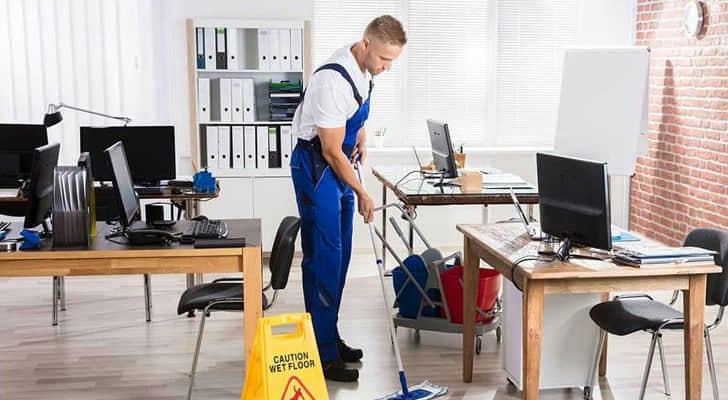Career Guide to the Cleaning Industry: Salary Information, Job Overview, and Entry Guidelines

Working in cleaning is essential for maintaining hygiene and cleanliness in various settings, including schools, hospitals, offices, and residential areas. With an increasing emphasis on cleanliness and hygienic environments, the demand for professional cleaners is steadily rising. If you’re considering entering the cleaning industry, this guide will provide valuable insights into salaries, job responsibilities, and how to get started in this field.
Overview of Cleaner Responsibilities
The primary role of a cleaner is to keep various environments tidy and clean. Their tasks often include sweeping, mopping floors, dusting surfaces, vacuuming, emptying trash, and disinfecting areas. They may also monitor cleanliness, operate specialized equipment, and perform basic maintenance tasks to ensure safety and hygiene in the environment.
In addition to routine cleaning duties, cleaners pay close attention to detail, ensuring that hard-to-reach areas, such as behind furniture and underneath appliances, are thoroughly cleaned. They are trained to handle various cleaning chemicals safely and to follow proper safety protocols when using different products.
Through their work, cleaners not only maintain a clean environment but also help identify potential maintenance issues, such as leaks or electrical problems, that can be reported promptly to ensure safety.
Cleaner Salary: Income Expectations
Salaries for cleaners vary based on location, experience, and the industry they serve. On average, cleaners earn between $25,000 and $30,000 annually. Those with more experience, particularly in high-demand fields like healthcare or industrial cleaning, can earn higher wages.
Factors that influence cleaner salaries include:
•Location: Public cleaning wages tend to be lower in small towns or rural areas.
•Experience: Experienced cleaners can work more efficiently, often commanding higher pay.
•Industry and Specialization: Cleaners specializing in healthcare or industrial settings typically earn more due to stricter cleanliness requirements.
•Additional Skills: Cleaners with specialized skills, such as carpet or window cleaning, may also receive higher compensation.
Essential Qualifications for Cleaners
While not all cleaning positions require certifications, having relevant credentials can enhance your competitiveness. Here are some beneficial certifications:
•OSHA Cleaning Industry Certification: Offers training on chemical usage and workplace safety.
•Furniture Cleaning Certification: Teaches effective cleaning and maintenance of various furniture materials.
•Infection Control Certification: Crucial for those working in healthcare settings, ensuring knowledge of infection prevention and hygiene maintenance.
Career Advancement Opportunities
As cleaners gain experience and skills, they have the opportunity to advance into management roles, such as cleaning supervisors, where they oversee team operations and schedule tasks. Cleaners can also choose to specialize in specific cleaning services, like residential or commercial cleaning, to increase their earning potential.
Some cleaners may even opt to start their own cleaning businesses, serving a broader clientele and building their own cleaning teams. This path requires entrepreneurial skills and customer management abilities.
Why Choose the Cleaning Industry?
Despite some perceptions that cleaning jobs are undervalued, this industry offers numerous advantages:
•Stable Demand: There is always a need for cleaning services, providing stable job opportunities for cleaners.
•Meaningful Contribution: Cleaners have a direct impact on the health and comfort of others, helping to create cleaner, safer environments.
•Flexible Work Hours: Many cleaning positions offer part-time or flexible scheduling, allowing individuals to balance other commitments.

Case Studies and Solutions
Case Study 1: Hospital Cleaning Needs
•Problem: A hospital found that its patient rooms were not thoroughly cleaned, increasing the risk of cross-contamination.
•Solution: By providing cleaners with Infection Control Certification training, the cleaning team learned proper disinfection techniques and adhered to hygiene standards, effectively reducing infection rates.
Case Study 2: Cleaning Efficiency Issues in a Commercial Building
•Problem: The management of a commercial building discovered that the cleaning team was inefficient and often failed to complete tasks on time, impacting the cleanliness of the office environment.Solution: The introduction of professional cleaning equipment and training for cleaners, along with a revised work schedule, significantly improved overall efficiency, ensuring that cleaning tasks were completed on time and boosting client satisfaction.
•Solution: By hiring highly skilled sewing machine operators who specialized in customization and alterations, the brand was able to offer bespoke services. These operators worked closely with clients to tailor garments to precise measurements, boosting customer satisfaction and enhancing brand reputation.
Case Study 2: Textile Factory Efficiency
Problem: A textile factory experienced delays in production due to outdated sewing machines and inefficient workflows.

Through this guide, you can gain a clearer understanding of the cleaning industry's job roles, salary expectations, and growth potential. Whether you pursue certifications to enhance your skills or seek higher-paying roles in specialized fields, the cleaning industry offers a wealth of opportunities.
